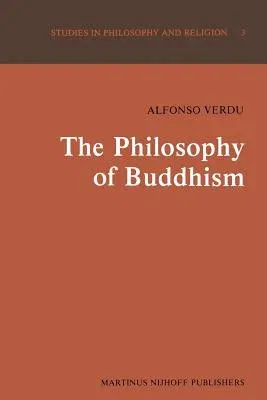A Verdu
(Author)The Philosophy of Buddhism: A "Totalistic" Synthesis (Softcover Reprint of the Original 1st 1981)Paperback - Softcover Reprint of the Original 1st 1981, 12 October 2011

Qty
1
Turbo
Ships in 2 - 3 days
In Stock
Free Delivery
Cash on Delivery
15 Days
Free Returns
Secure Checkout
Part of Series
Studies in Philosophy and Religion
Print Length
207 pages
Language
English
Publisher
Springer
Date Published
12 Oct 2011
ISBN-10
9400981880
ISBN-13
9789400981881
Description
Product Details
Author:
Book Edition:
Softcover Reprint of the Original 1st 1981
Book Format:
Paperback
Country of Origin:
NL
Date Published:
12 October 2011
Dimensions:
23.39 x
15.6 x
1.19 cm
Genre:
Buddhist
ISBN-10:
9400981880
ISBN-13:
9789400981881
Language:
English
Location:
Dordrecht
Pages:
207
Publisher:
Weight:
317.51 gm

